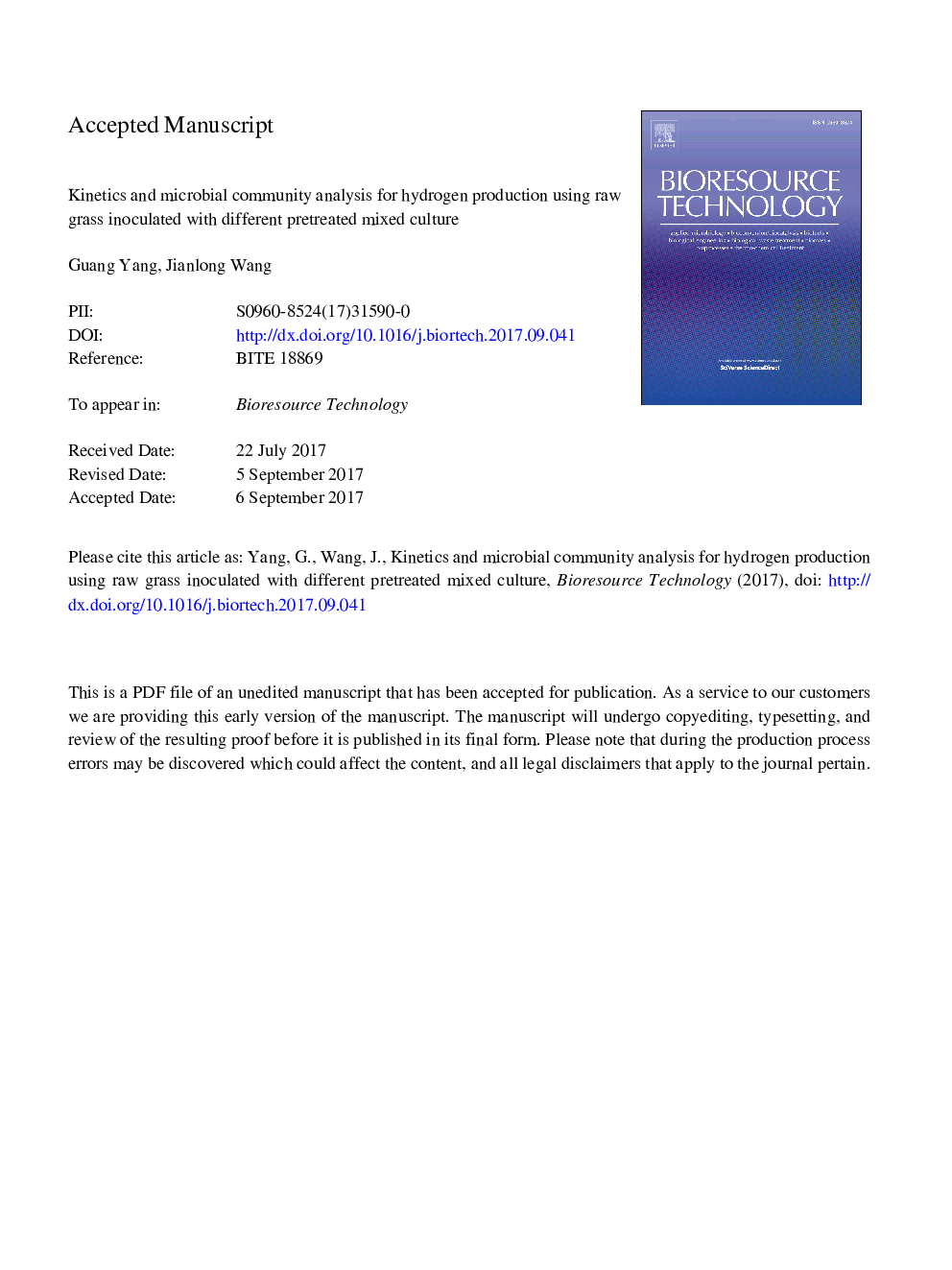| Article ID | Journal | Published Year | Pages | File Type |
|---|---|---|---|---|
| 7069570 | Bioresource Technology | 2018 | 38 Pages |
Abstract
In this study, five pretreatment methods (heat shock, acid, base, aeration and gamma radiation) were applied for enriching hydrogen producers from anaerobically digested sludge, aiming to compare their hydrogen fermentation performance using raw ryegrass as substrate. Results showed that various pretreatment methods caused great variations on grass hydrogen fermentation performance. Acid pretreatment was most efficient compared with other tested pretreatment methods, with relevant hydrogen yield of 64.4Â mL/g dry grass and organics removal of 31.4%. Kinetics results showed that the first-order kinetic model fitted hydrogen evolution better than the modified Gompertz model. Microbiological analysis showed that various pretreatment methods caused great variations on microbial activity and microbial community composition. Clostridium and Enterococcus were two dominant genera, while relative abundances of these two genera varied greatly for different pretreated samples. Difference in microbial activity and microbial community distribution induced by the pretreatment methods might directly cause different ryegrass fermentation performance.
Related Topics
Physical Sciences and Engineering
Chemical Engineering
Process Chemistry and Technology
Authors
Guang Yang, Jianlong Wang,
